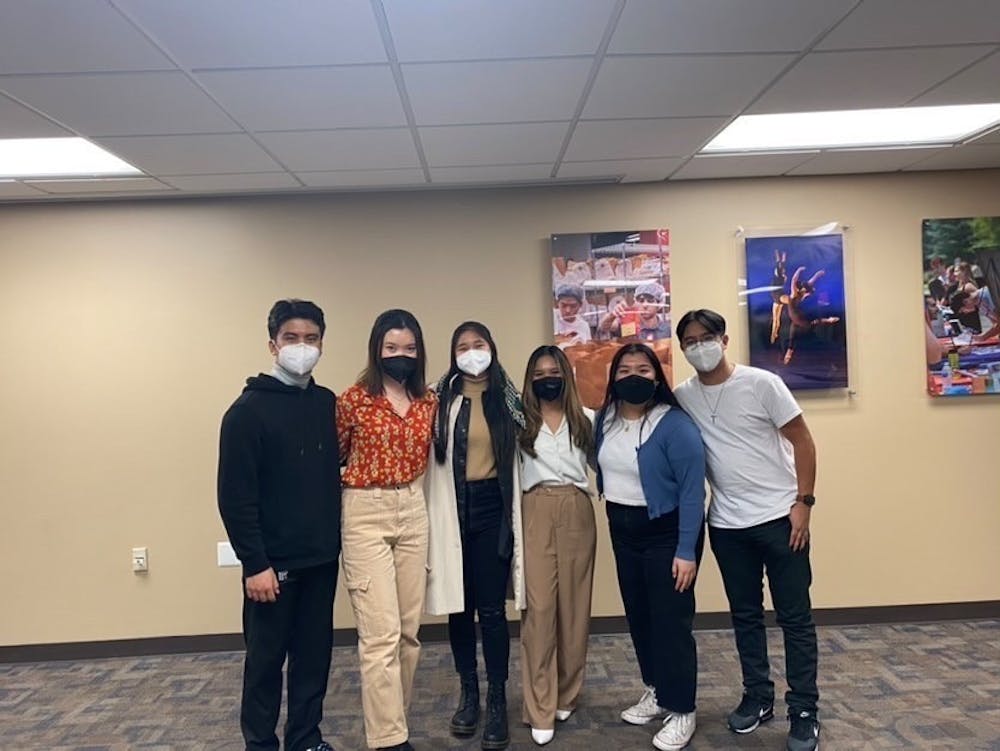After seeing the lack of affinity groups for Southeast Asian students, two American University students created their own where peers could share good food and hold cultural, political and academic discussions.
The Southeast Asia Student Network (SEANET) is a networking, academic and social club that allows Southeast Asians and Southeast Asian Americans to reconnect with their heritage and encourages curious students of all backgrounds to join and learn more about Southeast Asian politics, history, academia and culture. The club initially began in fall 2019 and was revived this semester.
Professor Heng-Blackburn, a professor in the School of International Service and the director of AU’s Association of Southeast Asian Nations (ASEAN) Studies Initiative, was a catalyst for the revival of SEANET.
Co-President Sammie Chai, a senior in the SIS, and Heng-Blackburn bonded over their shared Malaysian-Chinese identity. Heng-Blackburn told Chai there had previously been a successful organization called SEANET that partnered with Asian American Student Union (AASU) and the Malaysia-American Society but disappeared after the students who ran it graduated.
Chai wanted to get the club up and running again, but her plans were delayed due to the coronavirus pandemic shifting operations online. Heng-Blackburn connected her with Chanuk Thang, the club’s co-president and a junior in the SIS, and the two quickly began talking and decided to bring the club back to AU.
“The purpose of this organization should be to promote cultural awareness and diversity of Southeast Asia, addressing topics related to Southeast Asia,” Thang said.
SEANET, Chai said, is like an affinity group. The organization offers students a chance to explore their identity and encourages those who want to learn more about Southeast Asian culture to join.
Chai said the club acts as a safe place for Southeast Asian and Southeast Asian American students.
“I think that it’s always a good idea to have these safe spaces exist so that people can not only feel seen, but they know that there’s a group out there,” Chai said. “There’s a group of people that exist out there who have family histories that are … in alignment with their own.”
Although the SIS has optional regional focuses for East Asia and the Pacific as well as South and Central Asia, Chai said there isn’t enough emphasis on Southeast Asia.
“A lot of it is very East Asian centric and that’s a pretty common gap,” Chai said. “I just wanted to at least have some type of organization ... or meeting place for students of this identity to have a gathering place that’s specific to the region.
The SIS offers six classes that focus on the regions of East Asia and the Pacific, South Asia and Central Asia.
“Southeast Asia is the most diverse region in the world, in terms of people, in terms of cultures, languages, food, and political systems,” Heng-Blackburn said. “You have democracies, like Indonesia, and you have communist governments like Vietnam and Laos. It’s complex and diverse.”
Currently, there is one class that pertains exclusively to China and Japan; the rest of the classes offered in both regional focuses do not have specific countries listed in their class names. The SIS offers no regional focus that pertains to the Southeast Asian region.
Chai said Southeast Asia is often viewed through a lens of extreme violence, and instead of focusing on this violence, SEANET hopes to celebrate and uplift Southeast Asian culture and resilience by bringing in speakers and panels that focus on Southeast Asian diplomacy and politics.
American University currently has a club for Vietnamese and Filipino students, but not for students coming from Southeast Asian countries like Singapore, Thailand, Malaysia and Myanmar. Thang wants the club to become a community and act as a representative platform for all Southeast Asian students at American University and in the D.C., Maryland and Virginia area.
“There is some type of shared experience, not in a monolithic way but, people who might be more in tune and riding the same wavelength at some level, right?” Chai said. “And knowing a lot of the aspects of memory or loss or diaspora, like very specific diaspora-like emotions that arise and knowing that there’s a group of people out there that have these exact, or very similar feelings…”
The University’s Office of Institutional Research and Assessment (OIRA) collects data on student demographics. In fall 2020, 6.8 percent of undergraduate students identified as Asian.
“The importance of it goes back to how spread out the Asian community is also in D.C., in general,” Thang said. “We wanted to create this platform, not just to connect people to the politics, the academic side, the cultural side, but also be able to reinforce an identity they’ve carried throughout since they were a child.”





